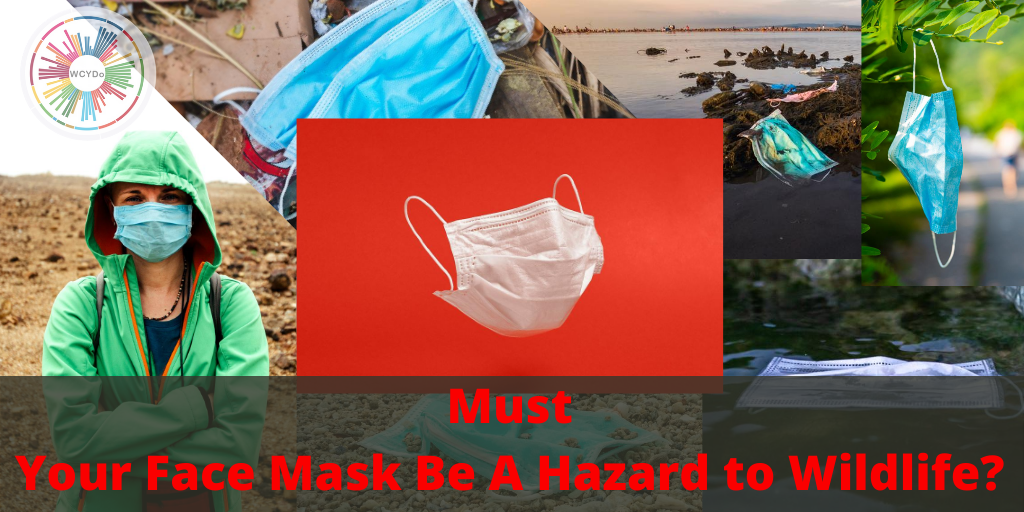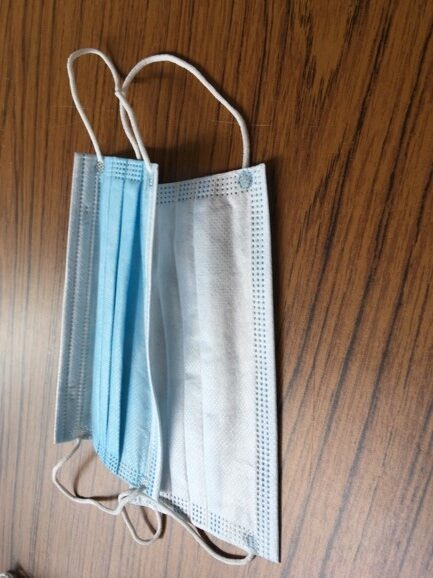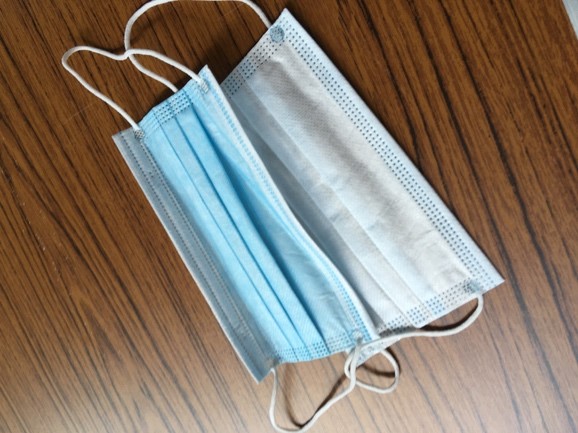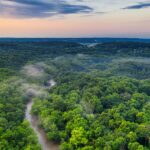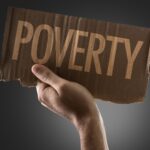Lockdown may have been good for improving air quality, but governments who signed up to the seventeen Sustainable Development Goals (SDGs) in 2015 seem to have thrown SDG 12 (Ensure Sustainable Consumption And Production Patterns) out the window.
In recent weeks the received guidance has come out in favour of face-coverings. We appear in shops and in the streets wearing masks all shapes and designs, but it is unfortunate that a sizable proportion of people are choosing to wear white, ‘surgical’, single-use masks. Globally, we are using 129 billion per month of these things, which are – generally – non-recyclable. The advice given on the British YouGov website is emphatic: single-use masks should be thrown into general household rubbish, a message being repeated worldwide. We should not include them with recycling as they would contaminate other recyclables.
It is possible to recycle single-use masks but the procedure involves specific machinery and techniques. To collect, separate and recycle PPE would cost more than the value of the resultant recycled material, and, as virgin plastic is cheap and widely available, no one bothers.
Single-use masks are, typically, made from polypropylene, a fossil fuel derived plastic, which being heat resistant and having a high chemical resistance, takes centuries to break down in landfill. In fact, polypropylene never fully degrades, but remains in the soil as a semi-permanent residue, and, if it finds its way into water, discharges tiny and harmful microplastics, which will be eaten by fish, birds and turtles and, in turn, by humans eating their meat. The tiny particles may enter the creatures’ windpipes, obstructing airways or may lodge in their stomachs, resulting in malnutrition.
Some single-use masks never even find their way into landfill via the bin, but are dropped accidentally, particularly in public parks and along beaches – or deliberately discarded as litter, for which there is no excuse. The environmental cost of careless disposal is appalling. Animals are eating discarded masks as food, or becoming entangled in them. In June 2020 the RSPCA in Southend, UK, rescued a young gull with its legs bound together by the elastic straps of a mask.
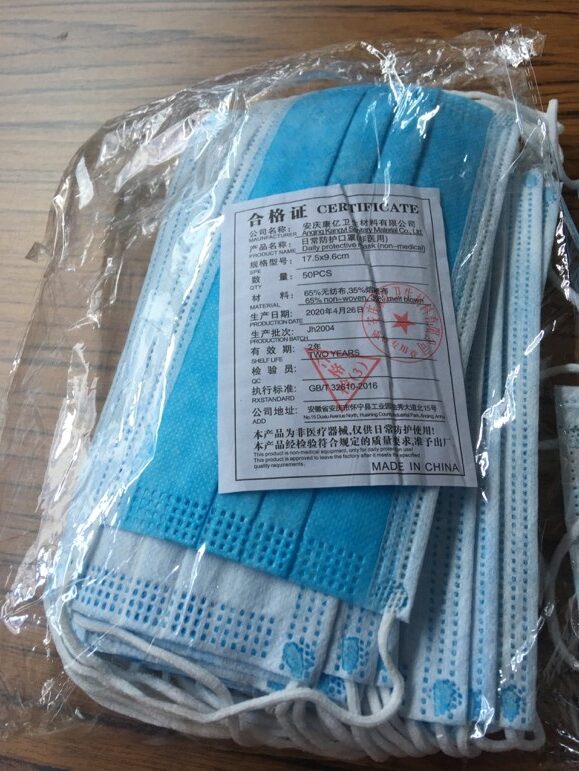
The University of British Columbia is developing a compostable and bio-degradable mask, built from wood fibres, sourced from local, sustainable forests. This Canadian Mask (‘Can Mask’), equivalent in design to a medical-grade N95, is being tested at the moment, and we wish the university design team well, but do the rest of us need a mask of this high specification, and can it be manufactured at a price we can afford?
Whereas health-workers and care-workers who come into contact with Covid-19 sufferers must, of course, have fully effective PPE, this is not necessary for Joe and Joanna Public. A cotton mask, made with three layers of material and washed frequently at 600C, is an effective barrier against aerosol transmission of Coronavirus. Moreover, it is reusable and sustainable. If we’re handy with a sewing machine, we can make your own, a pleated mask or a sculpted version, using up fabric remnants, old pillowcases and t-shirts (see https://www.gathered.how/). No sew masks are also possible (see https://sarahmaker.com/. Alternatively, we can buy cloth masks; there are many available in shops and for ordering online.
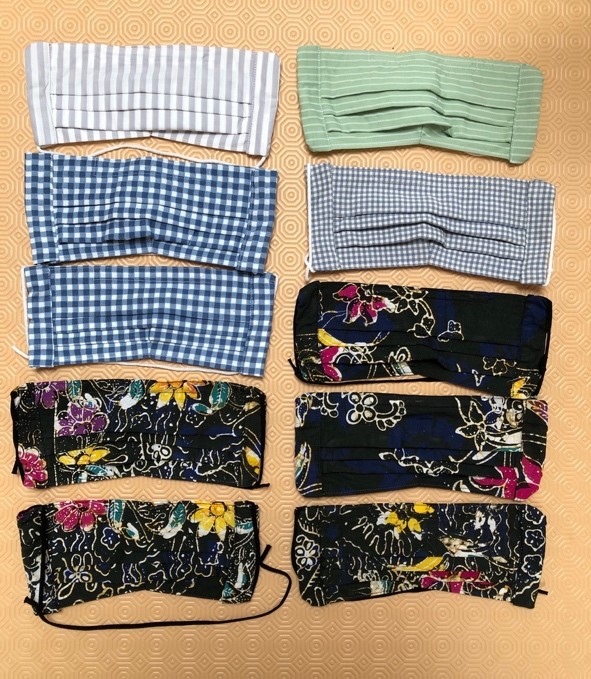
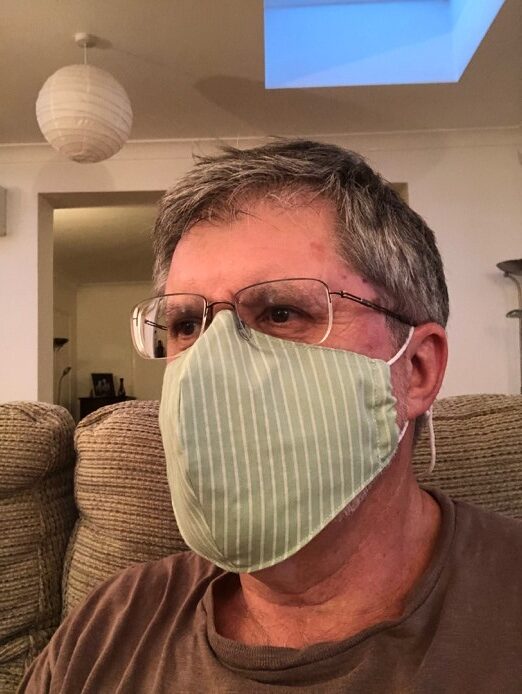
Take care and keep well. Coronavirus is not an excuse to discharge more plastic into our soil and our waterways, nor to disregard possible dangers to animals. Even in these unusual times, looking after our environment is as important as controlling the R Rate.
Tellus Blog: Rosemary Johnson
August 2020
Do you agree? Tell us what you think – email: tellus@whatcanyoudo.earth
“tellus” is a Latin word meaning “Earth” e.g. Tellus Mater the ancient Roman Earth Mother Goddess

